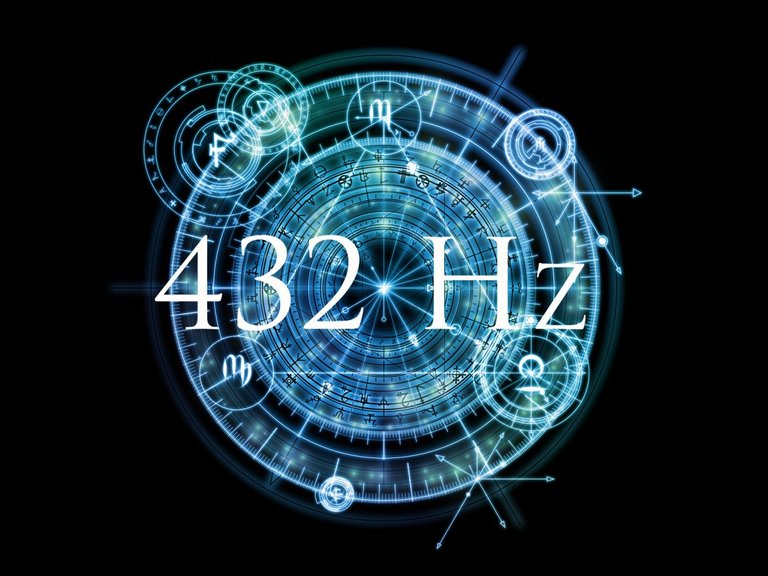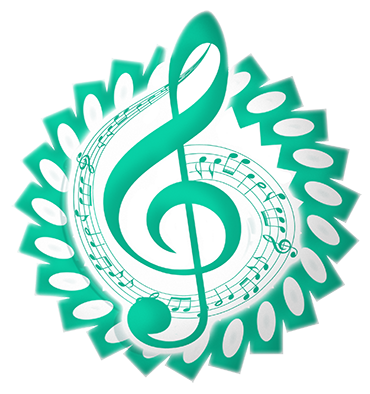
From some years ago one can read lots of posts about 432hz music. In this article I'll give you my reasons why I think it's false or pointless. It's a case of "first I have the theory I want to prove and after I search for the facts" and "I get a particular as an absolute". It doesn't mean that 432 music isn't good, in fact there are some examples of nice music with this tuning (here is the one that gives me the idea of this post).
First of all I should confess one thing: I'm not sure about if I have or not absolute ears, in fact I think the absolute ears is an absolute limitation. Why? Because the fact that occidental music is tuned after the tempered scales doesn't mean all the humanity does the same and there are, in fact, lots of ways of tuning. So if someone have the ability to catch a sound and give a name in occidental terms, it means that that person maybe is averaging the sound and giving a name to a group of sound that are not exactly the same. Is like when we say and see white and the Inuits say and see lots of tones inside white.
The second thing I should confess is that the most of my life I've been tuning my strings with different references, 438, 442, 436… and sometimes in 440. And I feel comfortable with all because I have relative ears and I get the relations between the sounds, not inly the isolated sounds. It have been for different reasons: my first violin was my grandpa's one and it have natural strings that didn't support well the tension and my teacher told me to tune at 438 in order to keep the strings healthy. Then I played a lot with metal strings and I tuned 440. Later I use to play with winds and they ask me to tune at 442. When I take lessons of ancient music I use to tune my viola lower than 438. I remember me playing an A with a lower tuning and thinking "ok, I'm playing a low A or a very little up G sharp. And really it doesn't matter the name the you give to things, things are.
Another thing to have in mind is that if we talk tempered or not. If you do computer music, I'm quite sure you use the temperament, and also if you play piano or even guitar. But if you play strings or winds, you can "improve" your sound altering the "conventional" temperament. You can make a semitone bigger or smaller depending of the tone tou are playing. And probably you will do it without being aware of, but you will. Here the maths of Hz are going to be slightly different. In fact temperament is an artifice to make possible for a keys instrument to play in all the tones.
The sounds are facts of nature, and the way we measure it is byassed by our understanding of world and, our understanding of world is byassed by our culture. A 440 or A 432 only means something to someone that is educated in occidental music.
I have the conviction that sounds, like all perceptions, aren't absolute itself but absolutely relatives. We can measure the Hz of a sound, but it doesn't matter at all if it's isolated, we give them sense with our previous knowledge.
That's what my common sense tells to me, now let's dig in the arguments pro 432hz
The first time someone send me an "article" about this issue was several years ago and ther one can read that the change from A 432 to A 440 was a Nazi call in 1939. But there were others who proposed 440 as standard before, but as I remember the one who made the text forgot to tell in order to give more importance to the Goebbles part of this history (it's a pity that I didn't keep the link, but you can find yourself lots of people saying it). And the goal of this change was to put people's mind in a "war mode". Returning to 432 would return humanity to a "peace state of mind".If you make a little research on the history of tuning, you will see that this is a nonsense because there have been lots of different tunes.
After this I received other articles with other arguments all around the same idea of 432 hz as "natural tuning". They use the Scumann resonance as excuse to defend the 432 saying that the basic earth frequency is 8hz and that if you tune A at 432 then C matches perfectly with an 8 multiple. (Here you have an example of this kind of arguments https://attunedvibrations.com/432hz-healing/ ) if you read it with non critical view you can think, ok, it's reasonable, but let's consider a couple of things:
The Schumann resonance is not 8hz is variable and if you want a number it would be 7.8hz, so tuning with the ides of 8hz as a basis is barbaric. Have you tried to play two notes at the same time with a very little difference in tuning? It sounds cacophonic! So if you tune with an 8hz basis you are making cacophonies with the world, universe, your soul…. Dramatic, right?
C 256 as a goal is pointless if you play in a tone that has C sharp!
DNA replication frequency: they say this but they don't say from where they take this info.
If you take a look to the posts and articles defending this theory you will notice a serious lack of external references. This is typical of pseudosciences, isn't it?
I'm sure if someone wants can find arguments to demonstrate that the real frequency of nature is 7, 9 or whatever number you want. At least numbers are a human way to talk about the world, but are not the world! And also hertz are a human way to count iteration, but not iteration itself! And seconds are also a human thing and… well, I think my point is clear.
Here is a youtuber that talks a little about it and plays different tunes in 440 and 432, you can hear; for me both are good!
And here a "neutral" article https://www.btrtoday.com/read/friday-music-and-medicine-week/
Resteemed, your post will appear in the next curation with a SBD share for you!
Your post has been supported and upvoted from the Classical Music community on Steemit as it appears to be of interest to our community.
If you enjoy our support of the #classical-music community, please consider a small upvote to help grow the support account!
You can find details about us below.

The classical music community at #classical-music and Discord. Follow our community accounts @classical-music and @classical-radio or follow our curation trail (classical-radio) at SteemAuto!
Delegation links: 10SP, 25SP, 50SP, 75SP, 100SP, 150SP, 200SP, 250SP, 500SP, 1000SP
Wow! Thank you so much classical-radio, it's an honor
Great article. I am not sure If I grasped every technical detail but I have the feeling you got it right, that there is no so-called natural tuning. There was a time before we could use modern measuring equipment, and people played and tuned their instruments differently, depending on tradition, location...Think about our voice.
Parenteze, mi remarkis, ke vi ankaux parolas Esperanton. Bonvenon en la eta Eo komunumo!
Exactly as you say, without measurement it's impossible tu tune exactly. Great example, the voice!
Dankon!
I specialise in Historical Music performance... and I was surprised by the number of people who are 432Hz advocates...
Historically it is as you say... the was a hodgepodge of both pitches and temperaments (mostly tuning from C and not A anyway....). In the modern historical performance movement, we have adopted several "standard" pitches of A= 392, 415, 430, 440, 466Hz depending on what sort of music (nationality and style) that we are playing and often a historical temperament that is appropriate as well! This is a bit of modern hack so that concerts with multiple styles and genres don't have to have a different tuning for each piece!
Anyway, historically musicians tended to tune to the church organ... which could have been anything from town to town depending on builder, the season... and how many times it had been cut down to "tune" the temperament....
Anyway, the 432Hz thing drives me nuts! Temperament, yes that makes sense... but the absolute pitch of the notes? Bleah....
Thanks for your answer Bengy! I don't know what to say except thanks, a pleasure reading and learning
In Ancient China, one way a conqueror asserted control was by imposing his country 's pitch standard on the conquered. One of a king's responsibilities was to maintain the standard pitch.
Posted using Partiko Android
When you say king you mean emperor? Anyway I think they didn’t have either accurated tuners so I’m not sure about what you say and don’t know how it is related with the 432 tuning affaire, but is a nice path to make a research. Yo have some source to read about it? Thanks for replying!
Emperor is a special case. The first emperor was the Qin emperor. Before his proclamation, the highest office was king.
Posted using Partiko Android
Oh! Ok, I understand. I realize that I know almost nothing about China history, and I'm sure it's very interesting! Thanks for the explanation